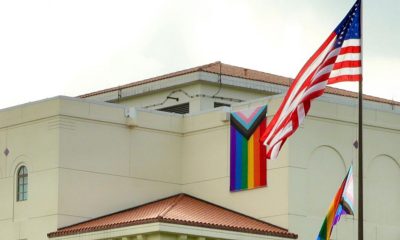South America
Uruguay’s LGBTQ activists continue fight for equality
Country seen as one of the world’s most LGBTQ-friendly nations
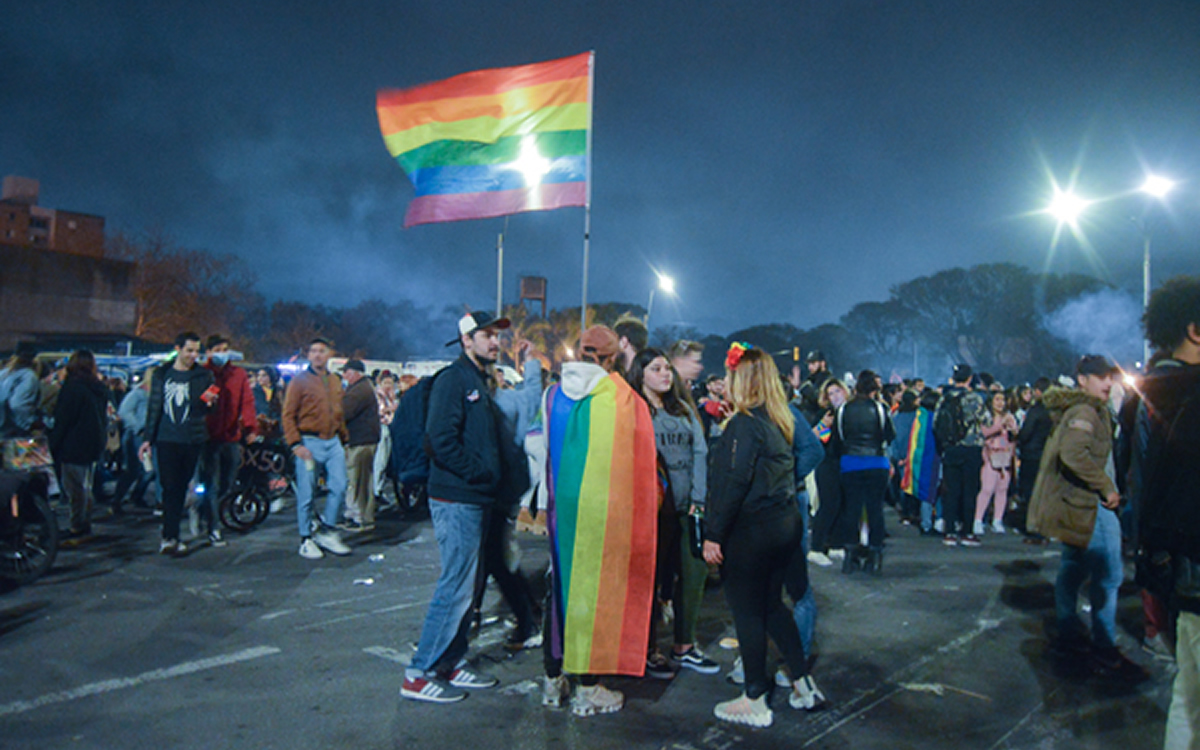
In a country that has historically been considered a vanguard in terms of human rights and recognition of sexual diversity in South America, Uruguay’s activists continue to emphasize the importance of continuing to fight for the effective implementation of policies that will improve LGBTQ people’s lives.
Various marches took place across the country last month, 30 years after Uruguay’s first queer rights demonstration. The march in Montevideo, the country’s capital, was the last of these protests that took place.
Nicolás Pizarro and Daniela Buquet of Coordinadora de la Marcha por la Diversidad and Diego Sempol, a political scientist and supporter of various organizations, in a series of exclusive interviews with the Washington Blade offered an in-depth look at Uruguay’s LGBTQ community’s current situation and the challenges it faces.
Progressive laws, incomplete implementation
Uruguay has been a pioneer in the region in terms of the implementation of laws that protect the rights of LGBTQ people. They include the Comprehensive Law for Trans Persons; the Law on the Voluntary Interruption of Pregnancy; the Law Against Racism, Xenophobia and all forms of Discrimination, and the Law on Gender-Based Violence. Uruguay’s marriage equality law took effect in 2013.
These laws have been the result of the hard work of social movements and activists who have fought tirelessly for equality and justice. Their effective implementation, however, remains a challenge.
Pizarro points out a lack of budget and political will has hindered the full realization of these public policies.
“Uruguay is in a difficult political context today, where the right-wing government is cutting budgets and pursuing a regressive agenda in (terms of) human rights legislation,” Pizarro told the Blade.
He said this situation has led to LGBTQ people having to lobby and take to the streets to demand that existing laws be enforced and the necessary resources be allocated to do so.
Sempol, meanwhile, indicated “the movement’s current demands are linked to the effective enforcement of the laws in all their terms and that economic resources are actually allocated to strengthen public policies.”
Pride march participants denounce impunity
Montevideo’s Pride march is an emblematic event that brings together thousands of people every year to celebrate diversity and demand equal rights.
Buquet explained this year’s demonstration happened under the slogan “Basta de impunidad y saqueo de derechos” or “Enough impunity and plundering of rights.” It reflects the LGBTQ community’s concerns over the obstacles they face in the search for equality and justice.
One of this year’s march highlights was the denunciation of the lack of governmental will to advance investigations into those who disappeared during Uruguay’s military dictatorship from 1973-1985. The LGBTQ community has joined this struggle, demanding justice for victims and accountability on the part of the State.
The march also sought to address a number of fundamental demands: Access to health care, education, work and housing without discrimination. The lack of budget to implement the gender-based violence and trans rights laws was an additional concern.
“We believe it is essential to denounce the cuts in public policies that leave the most vulnerable populations adrift,” Buquet told the Blade, specifically referring to the transgender rights law that has yet to be fully implemented. “They (trans people) continue to be one of the populations in the worst socioeconomic situations, they do not have access to jobs, they do not have access to education and health professionals still do not have the necessary training, which means that access to health care continues to be violated.”
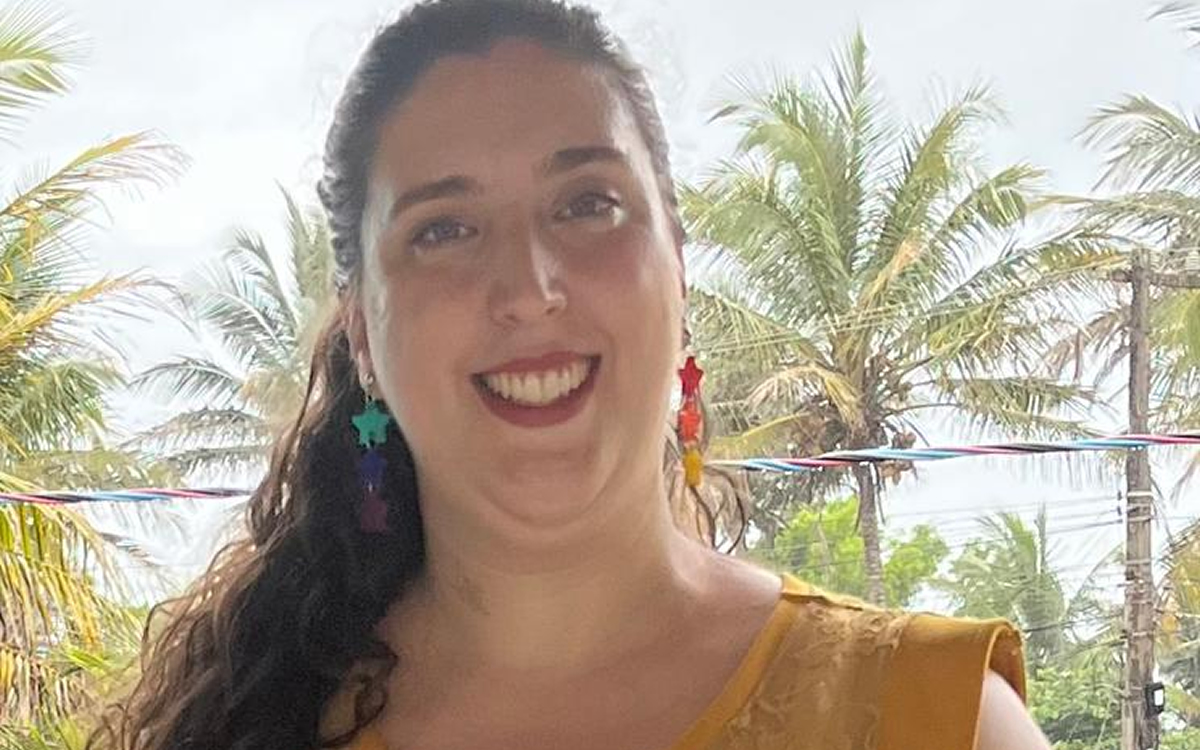
Pizarro pointed out “the sex-identity dissidences continue without access to health, culture, education, work and housing without being discriminated against.”
Initiatives seek to help LGBTQ Uruguayans
LGBTQ organizations and activists in Uruguay continue to carry out a series of initiatives and projects designed to help the community, despite the challenges and obstacles.
Pizarro noted Colectivo Diverso Las Piedras works in the Public Policy Council for Sexual Diversity to ensure the comprehensive implementation of existing laws that include the creation of assistance plans for LGBTQ people with a special focus on trans people who are in vulnerable situations. The group is also committed to training and raising awareness in places that include educational and institutional centers.
Colectivo Diverso Las Piedras works closely with other social movements in Canelones department and across the country to promote inclusive and equitable public policies.
One outstanding project on which it is working is “Trans Memories and Authoritarianisms” in collaboration with Diego Sempol, who is a professor and researcher at the Faculty of Social Services, and other organizations. project seeks to make visible the experiences of trans women detained and tortured during the Uruguayan dictatorship, shedding light on a dark period in the country’s history and highlighting the importance of an intersectional perspective when analyzing the recent past.
Pizarro told the Blade “the most important thing is to show the state that our rights are systematically violated.”
“Fifty years after the coup d’état in Uruguay we denounce the government’s unwillingness to move forward in the investigations of disappeared detainees, wanting to take human rights violators to serve their sentences at home and installing a false story of the two demons about this period, wanting to remove the responsibility of the State in crimes against humanity,” he said.
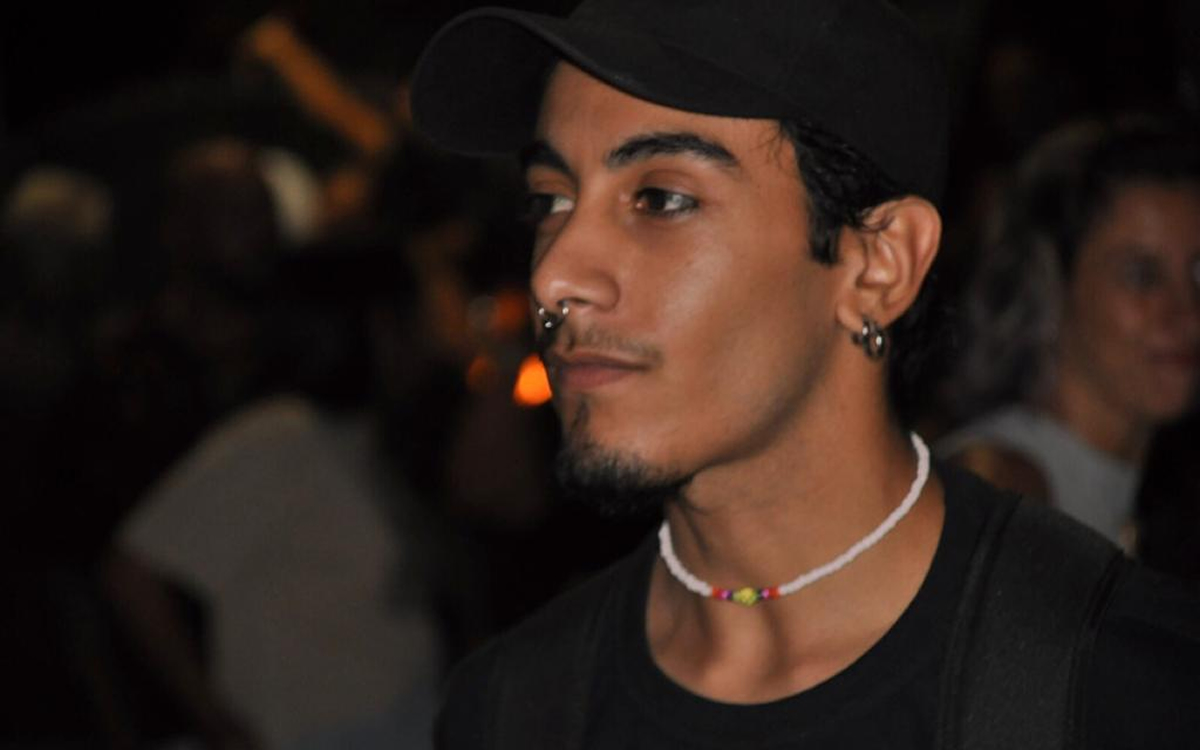
Sempol explained this reconstruction milestone “has a lot to do with the emergence of a memory, of a memory, of the gender dissidence that is trying to bet on reconstructing the past and somehow, to give this temporality to the struggles and to the identity of LGBTQ+ people in Uruguay. So there is a process of reconstruction, of a memory.”
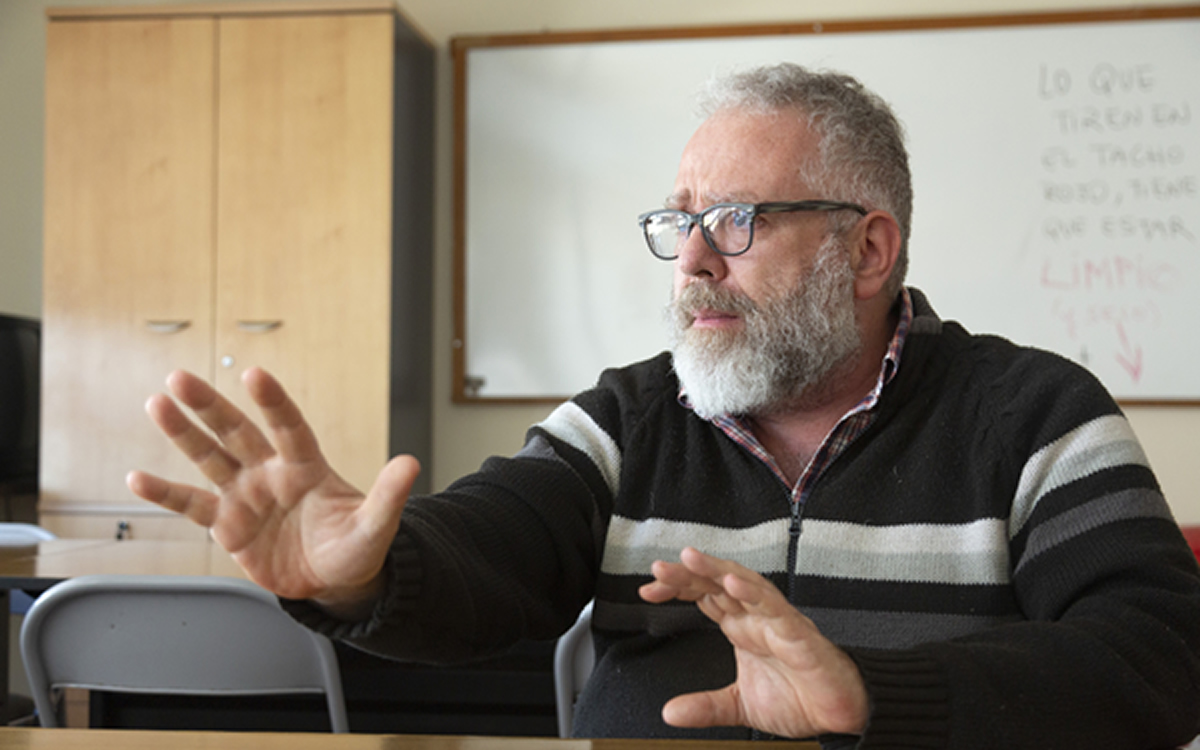
Chile
Transgender woman sues Chilean national police
Isabella Panes alleges she suffered harassment, exclusion after becoming ‘carabinera’

Isabella Panes in 2022 was celebrated as a symbol of inclusion.
Wearing an olive green uniform and a shy smile, she appeared in the media and on social media as Chile’s first trans female “carabinera” or national police officer. The Carabineros promoted Panes as a sign of openness, but that story has become a dramatic case of institutional discrimination.
Panes today faces the Carabineros in court.
She has denounced a series of systematic acts of exclusion, harassment at work, and violation of fundamental rights that she and her defense team maintains pushed her into a mental health crisis that almost cost her her life.
“My hope is that tomorrow we will be able to live in a world of equality for all. Just that we understand that we are human beings and we have to make life a lot easier for each other,” Panes told the Washington Blade during an exclusive interview.
Panes, 29, grew up in Laja in the Biobío region.
She dreamed of becoming a “carabinera” since she was a child, despite the fact that she faced discrimination because of her gender identity. After years of effort, surgeries and a difficult transition, Panes enrolled in the Carabineros Academy in 2021.
Panes faced the challenge of making her medical processes compatible with the physical demands of training. Even so, she graduated with good marks, and was recognized as part of the new institutional image the Carabineros wanted to project after the 2021 social unrest tarnished their image.
This institutional support disappeared after the media campaign.
Panes alleges she was marginalized from operational duties and relegated to administrative tasks, despite her interest in and training to patrol the streets like any other officers.
“I joined the Carabineros to serve, not to be a marketing decoration,” she said. “I was offered to be part of the change, but only if I kept quiet and accepted the mistreatment.”
The accusations against the Carabineros are serious: Constant mockery by colleagues, dissemination of private information about her personal life, invasive questions about her body and sexual orientation. Panes’s legal representatives said this abuse took place within a context where the institution did not take effective measures to protect their client.
The Carabineros Social Security Administration, known by the Spanish acronym Dipreca, also refused to cover her transition-related medical procedures, arguing they were “aesthetic,” despite medical reports that indicated their importance for Panes’s mental health and well-being.
Panes in January attempted to kill herself by suicide. She managed to survive after calling Chile’s 4141 mental health care number for help.
“They were killing me slowly, from the inside,” said Panes.
Panes has brought her case to the Supreme Court after a lower court ruled in favor of Dipreca’s decision to not cover her medical treatments.
Her legal team in a lawsuit has also accused the Carabineros of employment and systematic discrimination. Panes is seeking damages and institutional reforms.
“The Carabineros used Isabella to clean up its public image, but when it came to guaranteeing real rights, they abandoned her,” said Javiera Zúñiga, spokesperson for the Movement for Homosexual Integration and Liberation, a Chilean advocacy group.
“It is not enough to show up at the Pride march,” she added. “True inclusion is demonstrated in deeds, in daily dealings, in respect for the dignity of all people.”
Panes’s case starkly exposes the limits of diversity policies when there is no deep institutional commitment to implement them.
“I am no longer afraid,” said Panes, ”What happened to me cannot happen again. Not for me, but for all those who come after me.”
Brazil
US lists transgender Brazilian congresswoman’s gender as ‘male’ on visa
Erika Hilton has represented São Paulo since 2022

A transgender Brazilian congresswoman says the U.S. issued her a visa that listed her gender as “male.”
Erika Hilton on Wednesday wrote on her Instagram page that she requested a visa that would have allowed her to travel to the U.S. in order to participate in the Brazil Conference at Harvard University and the Massachusetts Institute of Technology.
The conference took place earlier this month.
“I was classified as ‘male’ by the U.S. government when I went to get my visa,” wrote Hilton, who added a visa she received from the U.S. in 2023 listed her gender as “female.”
Hilton is a Black travesti and former sex worker from São Paulo who won a seat in the Brazilian Congress in 2022. The Washington Blade spoke with Hilton shortly after her election.
“It is a big responsibility … but I feel very honored,” said Hilton. “I very much like to be able to be a representative for my people, and the more than 250,000 people who voted for me have confidence in me,” she said after she spoke at a rally in support of now Brazilian President Luiz Inácio Lula da Silva in a São Paulo square. “This demonstrates that our work has the potential to have a gigantic reach; where we can advance efforts to end death, poverty, misery, genocide that we have.”
President Donald Trump in his inaugural speech announced the federal government’s “official policy” is “there are only two genders, male and female.” The Trump-Vance administration has also banned the State Department from issuing passports with “X” gender markers.
Germany and Denmark are among the countries that have issued travel advisories for trans and nonbinary people who plan to visit the U.S. These warnings come ahead of WorldPride, which is scheduled to take place in D.C. from May 17-June 8.
Hilton said she is “not surprised” the U.S. issued her a visa with a male gender marker.
“I’m also not surprised by the level of hatred and fixation these people have with trans people,” she said. “After all, the documents I presented are rectified, and I’m registered as a woman, even on my birth certificate.”
Hilton further accused the U.S. of “ignoring official documents from other sovereign nations, even from a diplomatic representative.”
“At the end of the day, I’m a Brazilian citizen, and my rights are guaranteed and my existence is respected by our own constitution, legislation, and jurisprudence,” she said.
Editor’s note: Duda Salabert, another transgender Brazilian congresswoman, also said the U.S. listed her gender as “male” on her American visa.
Argentina
Gay, nonbinary parent fights for family in Argentina’s courts
Leonardo Hatanaka alleges they were fired after requesting paternity leave

An unprecedented case could set an important legal precedent for the rights of labor rights for LGBTQ families in Latin America.
Leonardo Hatanaka, a Brazilian pharmaceutical professional, expects an imminent ruling from the Superior Court of Justice in the Autonomous City of Buenos Aires in a case that alleges discriminatory dismissal based on sexual orientation, gender identity, and xenophobia after their son Matteo’s birth in Argentina via “solidarity gestation.” Human rights organizations and international agencies have followed the case closely.
Genzyme de Argentina S.A. and Sanofi in 2023 fired Hatanaka weeks after they notified them of their son’s paternity and requested 180-day parental leave.
“Matteo’s birth was the realization of a dream and the right to form a family with love, dignity and equality, even if that means having to fight every day for our family to be recognized as such,” Hatanaka told the Washington Blade in an exclusive interview.
The National Institute Against Discrimination, Xenophobia and Racism, a government agency known by the acronym INADI that President Javier Milei’s administration has shut down, in November 2023 said Hatanka’s termination was motivated by discrimination based on sexual orientation and gender identity.
(Milei took office in December 2023.)
The General Directorate of Coexistence in Diversity in Buenos Aires’s government in 2024 said institutional xenophobia motivated the firing.
“I am a gay man, foreign, nonbinary, and I had requested to exercise my right to parental leave,” Hatanaka explained. “The company denied access to a basic right to care, which it does provide in other countries, and did not provide any medical coverage for our son, despite his legal registration with both parents’ names.”
Sanofi did not acknowledge responsibility, offer apologies or any kind of reparations, despite the two rulings.
“It was devastating. I was caring for a newborn, at a moment of enormous vulnerability, and the company chose just that moment to abandon us,” said Hatanaka.
The National Labor Court overturned an initial injunction that ordered Hatanaka’s reinstatement. Hatanaka appealed the decision to the Superior Court of Justice in the Autonomous City of Buenos Aires.
“I hope for justice; that the discrimination suffered is recognized, and that this ruling serves as a precedent for all diverse families and LGBTQ+ people who are seeing their rights violated,” said Hatanaka.
The Argentine LGBT Federation, SOS Homophobie in France, and Mothers of Resistance in Brazil are among the organizations that have expressed their support. The latest U.N. report on anti-LGBTQ discrimination also notes the case.
“Companies must go beyond marketing,” Hatanaka emphasized. “Real inclusion requires concrete actions, consistency, and respect for their own policies.”
Hatanaka stressed that “there are instruments such as the UN Guiding Principles on Business and Human Rights. It is time for them to comply with them.” The lawsuit has also become a symbol of the struggle for equality and protection of families with parents who are the same sex.
“I feel I represent many LGBTQ+ families who live in fear of losing everything by exercising their rights,” said Hatanaka. “LGBTQ+ parenting is legitimate, real and deserves protection. No family should be punished for existing.”
-

 Federal Government3 days ago
Federal Government3 days agoHHS to retire 988 crisis lifeline for LGBTQ youth
-

 Opinions3 days ago
Opinions3 days agoDavid Hogg’s arrogant, self-indulgent stunt
-

 District of Columbia2 days ago
District of Columbia2 days agoD.C. police seek help in identifying suspect in anti-gay threats case
-

 Virginia3 days ago
Virginia3 days agoGay talk show host wins GOP nom for Va. lieutenant guv





